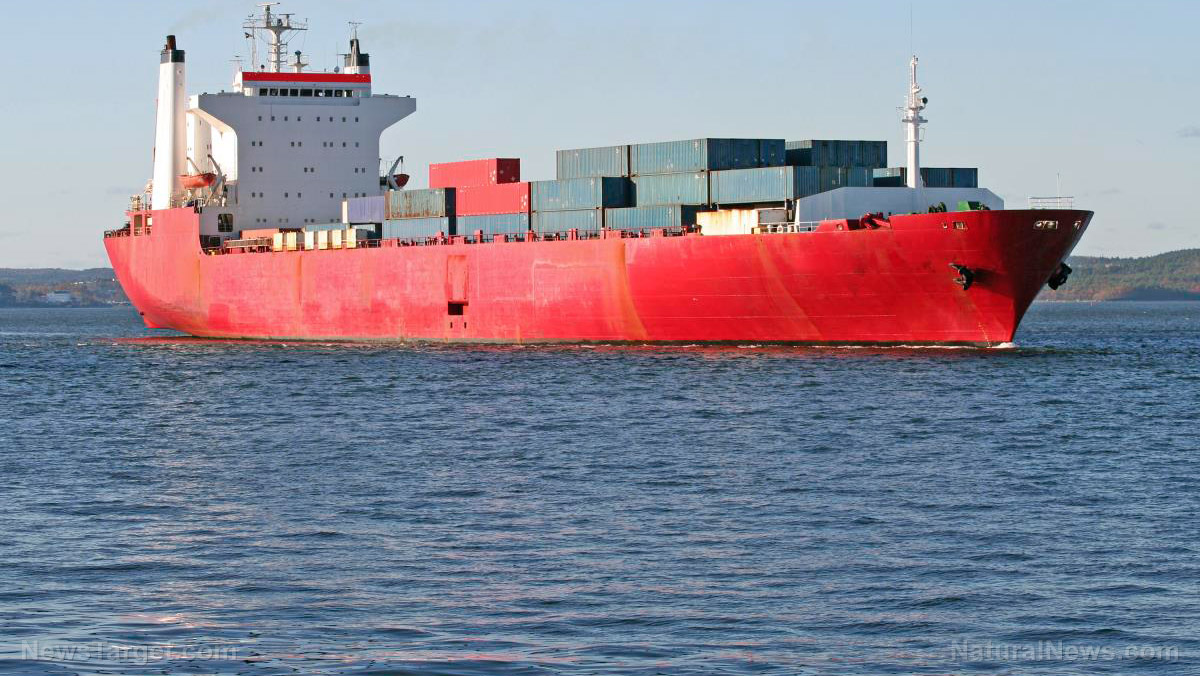 Parler
Parler Gab
Gab
- The Bab el-Mandeb Strait, a critical 20-mile-wide maritime passage, has become a geopolitical flashpoint, impacting global trade, energy security and regional stability due to Houthi attacks on commercial ships since late 2023.
- Houthi missile and drone strikes, initially targeting Israel-linked vessels, have expanded to include all Western shipping, forcing major shipping companies to reroute via South Africa, increasing costs and delays.
- The strait, historically contested and vital for global oil shipments, saw oil traffic drop by over 50 percent in 2024, highlighting its role as a linchpin in global energy markets and maritime trade.
- The strait’s strategic importance is amplified by U.S.-China rivalry and intra-Gulf competition, with both nations maintaining military bases in Djibouti, further entangling global powers in the region’s instability.
Targeted Houthi strikes and threats against shipping successfully choke traffic through Bab el-Mandeb
The Houthi attacks have slashed oil traffic through the strait by over 50 percent in the first eight months of 2024, according to the Energy Information Administration (EIA). This decline underscores the strait's role as a linchpin in global energy markets, with 15 percent of global maritime trade passing through it annually. Israel, the U.S. and their allies have responded with military strikes against Houthi targets in Yemen, aiming to restore freedom of navigation and stabilize energy markets. However, the situation remains precarious. The Houthi attacks are not merely a local conflict but part of a broader proxy war between Iran and its rivals. The Houthis, a Shia rebel group that controls much of western Yemen, have leveraged their position along the strait to disrupt global trade and pressure the U.S. and its allies. Their actions have drawn international condemnation but also exposed the limits of military deterrence. "The inability of oil to transit a major chokepoint, even temporarily, can lead to substantial supply delays and higher shipping costs, resulting in higher world energy prices," the EIA noted in a recent report. The crisis has also highlighted the strait's strategic importance in the broader context of U.S.-China rivalry and intra-Gulf competition, with both nations maintaining military bases in Djibouti, which flanks the strait. "Overtly deterring the Iranian-backed Houthis means the U.S. would need to be willing to engage in a wider military confrontation with Iran," said Joe Macaron, a Middle East Program Global Fellow for the Wilson Center. This dynamic complicates efforts to stabilize the region, particularly as Arab and European allies remain reluctant to join a broader military campaign. Find more stories like this at SupplyChainWarning.com. Watch this video showcasing how Houthi missiles set fire to a Norwegian tanker traveling through the Bab el-Mandeb Strait. This video is from the channel The Prisoner on Brighteon.com.More related stories:
SABOTAGE? Chinese vessel accused of intentionally severing undersea cables in Europe. Malaysia, which controls 25 percent of the world's sea route trade via the Strait of Malacca, announced it is joining BRICS. Geopolitical analyst warns of economic chaos should Iran shut down Strait of Hormuz. China continues to threaten Taiwanese airspace, deploying WARPLANES to cross Taiwan Strait median line. U.S. warns China about plans to increase military drills in South China Sea region. Sources include: WilsonCenter.org GCaptain.com MEI.edu Brighteon.comCIA busy polishing its Ukraine legacy
By News Editors // Share
Forever chemicals in farmland sludge threaten health, EPA admits
By Cassie B. // Share
Nebraska moves to ban lab-grown meat, joins growing push against fake food
By Cassie B. // Share
Hamas’ RESILIENCE in Gaza complicates path to lasting peace after ceasefire
By Kevin Hughes // Share
Climate change fanatics want to bankrupt the entire world for little to no reward
By News Editors // Share
Zelensky demands U.S. troops put their lives on the line in Ukraine for peace deal
By Cassie B. // Share
Governments continue to obscure COVID-19 vaccine data amid rising concerns over excess deaths
By patricklewis // Share
Tech giant Microsoft backs EXTINCTION with its support of carbon capture programs
By ramontomeydw // Share
Germany to resume arms exports to Israel despite repeated ceasefire violations
By isabelle // Share










